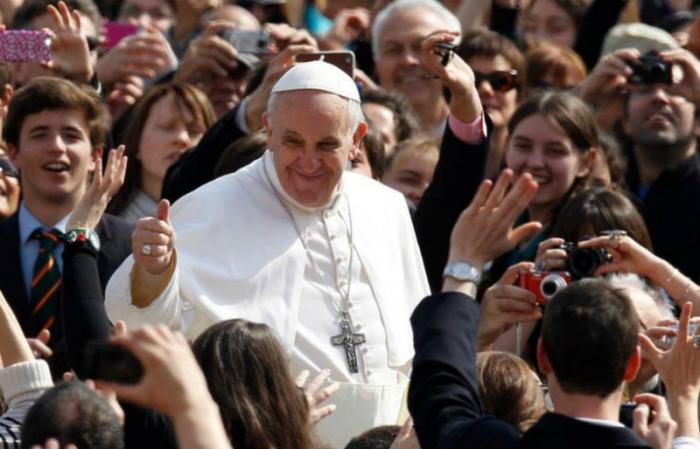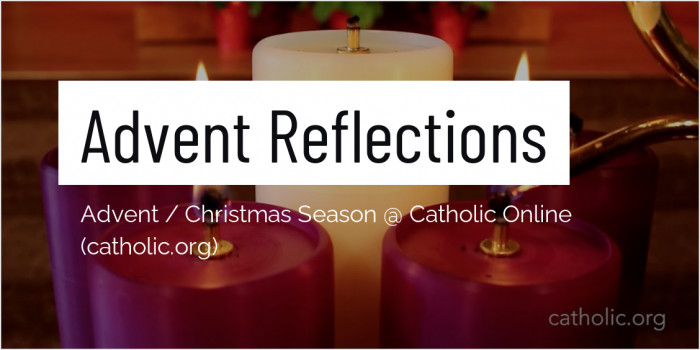 Dear readers, Catholic Online was de-platformed by Shopify for our pro-life beliefs. They shut down our Catholic Online, Catholic Online School, Prayer Candles, and Catholic Online Learning Resources—essential faith tools serving over 1.4 million students and millions of families worldwide. Our founders, now in their 70's, just gave their entire life savings to protect this mission. But fewer than 2% of readers donate. If everyone gave just $5, the cost of a coffee, we could rebuild stronger and keep Catholic education free for all. Stand with us in faith. Thank you. Help Now >
Dear readers, Catholic Online was de-platformed by Shopify for our pro-life beliefs. They shut down our Catholic Online, Catholic Online School, Prayer Candles, and Catholic Online Learning Resources—essential faith tools serving over 1.4 million students and millions of families worldwide. Our founders, now in their 70's, just gave their entire life savings to protect this mission. But fewer than 2% of readers donate. If everyone gave just $5, the cost of a coffee, we could rebuild stronger and keep Catholic education free for all. Stand with us in faith. Thank you. Help Now >
Questions about Death ... ANSWERED: Catholic Church provides responses to life's toughest questions
FREE Catholic Classes
In the 14th century, approximately one third of the population of Europe - or anywhere from 75 million to 200 million people - was wiped out due to what became known as the Black Death.

The Catholic faith is rooted in the belief that God made us to enjoy eternal life with him.
Highlights
Catholic Online (https://www.catholic.org)
7/2/2017 (7 years ago)
Published in Living Faith
Keywords: Death, Catholic Church, Catechism, Life after Death, Heaven, Jesus
London, England (CNA/EWTN News) - Characterized by and named for the black, bulbous sores that oozed pus and blood, the affliction typically killed its victims within two to seven days.
The Black Death, also known as the Black Plague, understandably shook the faith of the people of Europe at the time. It was shortly after its reign of terror that an anonymous Dominican friar wrote "Ars moriendi," or "The Art of Dying," a six-chapter work explaining the Church's perspective on a good death.
It included catechesis on why death was not to be feared, how the soul could prepare itself for death, and proper prayers to for the individual and loved ones to say at the time of death. A shorter version translated the book into 11 woodcuts illustrating the work.
Now, more than 600 years later, "The Art of Dying" got a facelift, thanks to the Catholic Church in England and Wales.
The teachings have been translated onto a website, complete with animations, video interviews with experts and priests, and explanations of various aspects of preparing well for death as a Catholic. The new resource was debuted last year, one day before All Souls' feast day, where the Church remembers and prays for the dead.
"Most people have an instinctive fear of death, but many also have a conviction that something lies beyond, that death does not have the last word," the website explains.
"The Catholic faith is rooted in the belief that God made us to enjoy eternal life with him."
The Art of Dying website is split into five categories - What is dying well?, Talking about death, Facing death personally, Losing a loved one, and Caring for the dying.
It also explains the various means of spiritual support available through the Church for a dying person, including the Anointing of the Sick, and final reception of the sacraments of confession and communion.
It also addresses the big questions people often have at the end of their lives the meaning of life, suffering, and the goodness of God.
"Sometimes people wonder, when confronted by tragedy or suffering, why God lets it happen. When we are tempted to echo those words, we need to remember that God is now and forever at the heart of any human suffering," Fr. Peter Harries, the Catholic chaplain at University College London Hospital, told The Art of Dying.
"The Christ who was cruelly tortured and crucified on Calvary suffers still whenever there is pain, suffering or death, among those he now identifies with. If we ask 'where was God in all this?', the answer has to be 'There, wherever there are human beings'."
But The Art of Dying is not just for Catholics, the creators of the website explain in their 'About' section.
"There is a shared interest in discussing how we can make death more peaceful and meaningful. It is likely that you will share the Church's concern that sometimes, particularly in hospital, dying patients are subjected to unnecessary medical interventions that prolong suffering," they said.
"You will probably agree with the Church that they should be kept as comfortable as possible and given appropriate pain relief. You will probably want to know more about what you can do to achieve a good death for you and your loved ones."

With exception of the trip to Auschwitz, Pope Francis is enjoying his visit to Poland for World Youth Day.
In an age where physician-assisted suicide and euthanasia, both of which the Catholic Church strongly opposes, have become increasingly popular, the updated Art of Dying could serve as a valuable resource for Catholics and people everywhere who are looking for answers to their questions about how to die a good death.
"After centuries of ministering to the dying, the Catholic Church has a fund of experience to share in what was traditionally called the art of dying well," the website explains.
This article was originally published on CNA Nov. 2, 2016.
---
'Help Give every Student and Teacher FREE resources for a world-class Moral Catholic Education'
Copyright 2021 - Distributed by Catholic Online
Join the Movement
When you sign up below, you don't just join an email list - you're joining an entire movement for Free world class Catholic education.

-

-
Mysteries of the Rosary
-
St. Faustina Kowalska
-
Litany of the Blessed Virgin Mary
-
Saint of the Day for Wednesday, Oct 4th, 2023
-
Popular Saints
-
St. Francis of Assisi
-
Bible
-
Female / Women Saints
-
7 Morning Prayers you need to get your day started with God
-
Litany of the Blessed Virgin Mary
Bone Box Inscribed with Name of Jesus' Brother Unveiled as 'Most Significant Relic from Time of Christ'
-

Miracle of St. Januarius' Blood Liquefies in Naples
-

Advent Reflection - Day 20 - The Third Friday of Advent
-
Reaching Out: 7 Steps to a Blessed Christmas
-
Advent Reflection - Day 19 - The Third Thursday of Advent
Daily Catholic
 Daily Readings for Saturday, December 21, 2024
Daily Readings for Saturday, December 21, 2024 St. Peter Canisius: Saint of the Day for Saturday, December 21, 2024
St. Peter Canisius: Saint of the Day for Saturday, December 21, 2024 Advent Prayer: Prayer of the Day for Saturday, December 21, 2024
Advent Prayer: Prayer of the Day for Saturday, December 21, 2024- Daily Readings for Friday, December 20, 2024
- St. Dominic of Silos: Saint of the Day for Friday, December 20, 2024
- Advent Prayer: Prayer of the Day for Friday, December 20, 2024
![]()
Copyright 2024 Catholic Online. All materials contained on this site, whether written, audible or visual are the exclusive property of Catholic Online and are protected under U.S. and International copyright laws, © Copyright 2024 Catholic Online. Any unauthorized use, without prior written consent of Catholic Online is strictly forbidden and prohibited.
Catholic Online is a Project of Your Catholic Voice Foundation, a Not-for-Profit Corporation. Your Catholic Voice Foundation has been granted a recognition of tax exemption under Section 501(c)(3) of the Internal Revenue Code. Federal Tax Identification Number: 81-0596847. Your gift is tax-deductible as allowed by law.







 Daily Readings for Saturday, December 21, 2024
Daily Readings for Saturday, December 21, 2024 St. Peter Canisius: Saint of the Day for Saturday, December 21, 2024
St. Peter Canisius: Saint of the Day for Saturday, December 21, 2024 Advent Prayer: Prayer of the Day for Saturday, December 21, 2024
Advent Prayer: Prayer of the Day for Saturday, December 21, 2024

